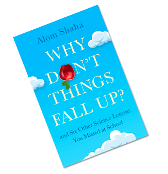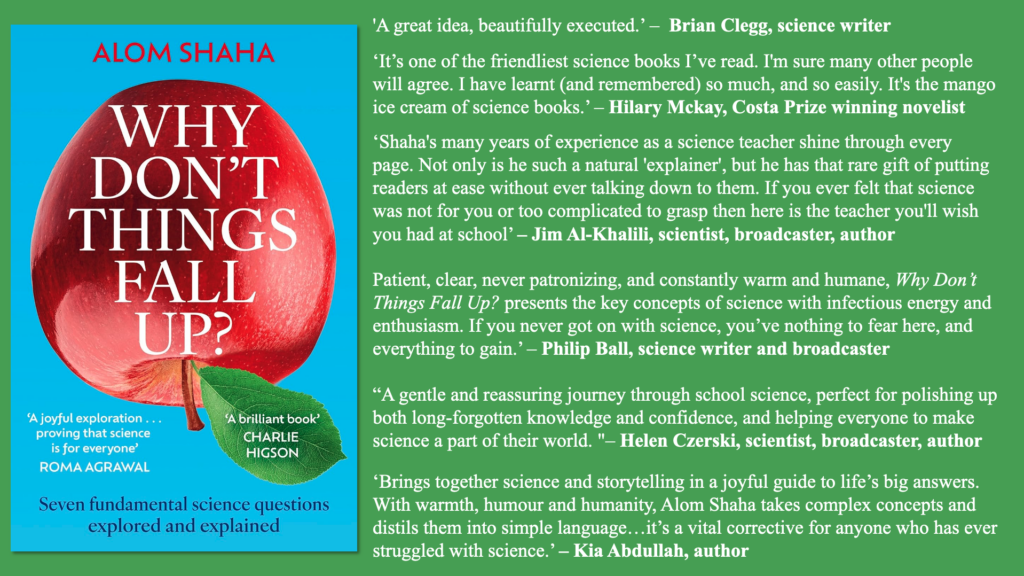Why Don’t Things Fall Up?

Why Don’t Things Fall Up? delivers what every adult and schoolchild deserves, but often doesn’t get: an authoritative and accessible account of the key ideas in science. The book is rooted in Alom’s belief that science is one of humanity’s greatest cultural achievements, an appreciation of which of which can enrich our lives in the same way as art, music, and literature.
In just 7 chapters, each starting with a child-like question, Alom takes the reader on a journey that begins with examining the very nature of science itself and goes on to help the reader understand everything from the physics of space and matter to the biology of our bodies and the origins of life itself. Alom covers the topics in the national curriculum for science in a way that no textbook has ever done, helping readers make better sense of the science they should have learned at school.
Unlike other popular science books which have aimed to cover the scientific canon, Why Don’t Things Fall Up? is written from the perspective of someone who has spent much of the past twenty-five years or so trying to explain science to people who don’t understand it, and sometimes have little inclination to try.
The explanations in this book have been held up as exemplary by some of the UK’s best science writers and leading science teacher trainers. What really sets Why Don’t Things Fall Up? apart is that Alom knows about and takes into account the most common misconceptions and intellectual hurdles which prevent people from grasping key ideas. Alom has honed these explanations over many years through his work as a teacher and one of the UK”s leading and most well-regarded “science communicators”. But it’s not just a compendium of facts, Why Don’t Things Fall Up? includes stories which best illustrate how scientific discoveries are really made, as opposed to simplistic narratives of lone geniuses and single moments of inspiration. All this combines to bring the science you should have learned at school into a coherent narrative of what is perhaps the greatest “creation story” ever told, answering the “big questions” about life and the universe as we know it.
